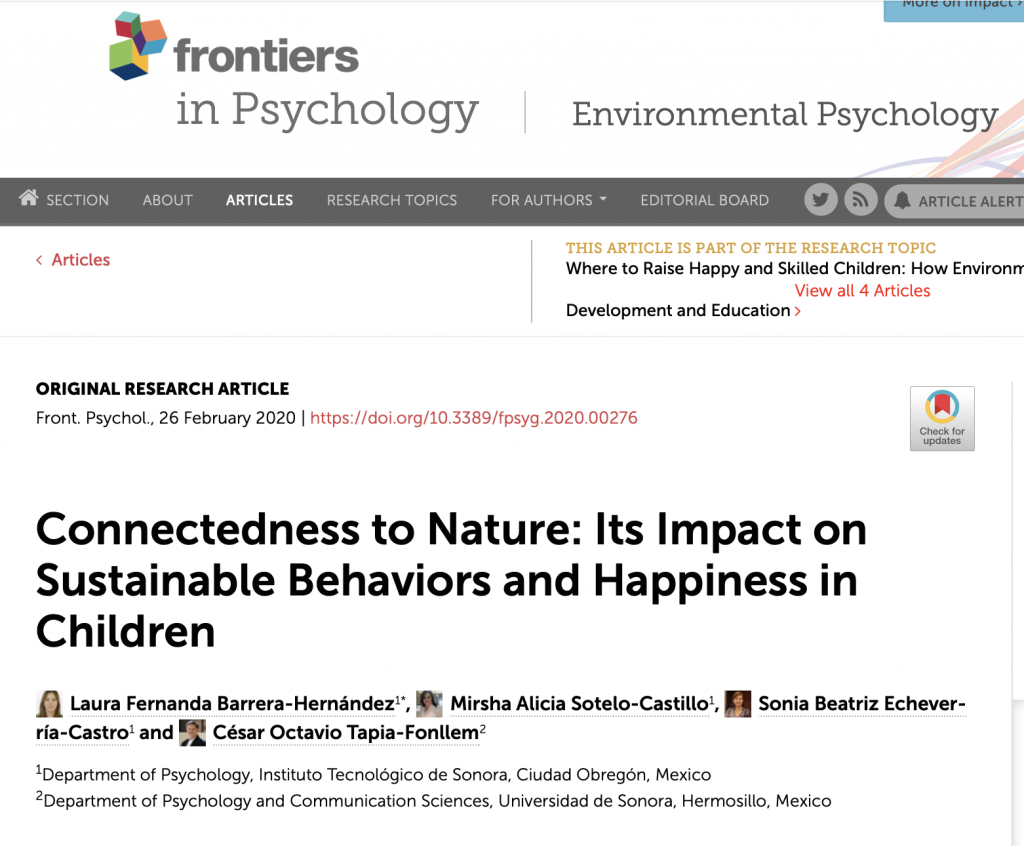Previous research on adults suggests, in an isolated manner, the relationship between connectedness to nature, the development of behaviors in favor of the environment, and positive results derived from them, such as happiness and well-being. In the present research, connectedness to nature was considered as a determinant of sustainable behaviors, and happiness was considered as a positive consequence of the latter. This research aimed to demonstrate the relationship between these variables in children. Two hundred and ninety-six children with an average age of 10.42 years old participated in the study, in which they responded to a research instrument that measured connectedness to nature, sustainable behaviors (pro-ecological behavior, frugality, altruism, and equity), and happiness. To analyze the relationships between these variables, a model of structural equations was specified and tested. The results revealed a significant relationship between connectedness to nature and sustainable behaviors, which, in turn, impact happiness. This suggests that children who perceive themselves as more connected to nature tend to perform more sustainable behaviors; also, the more pro-ecological, frugal, altruistic, and equitable the children are, the greater their perceived happiness will be. The implications for studying and promoting sustainable behaviors are discussed within the framework of positive psychology.
Source: Connectedness to Nature: Its Impact on Sustainable Behaviors and Happiness in Children
